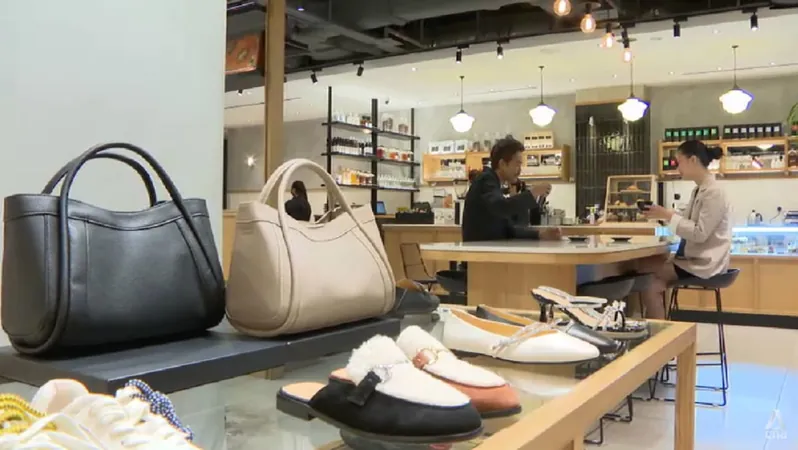
Why Retail Brands Are Brewing Success by Diving Into Food & Beverage
2024-09-25
SINGAPORE: Retail brands are increasingly turning to food and beverage (F&B) services to enhance their revenue and combat the challenges posed by rising rental costs and the booming e-commerce sector. This strategic move is designed to not only diversify income but also create a more engaging and immersive shopping experience for consumers.
The Shift to Immersive Experiences
Recent reports reveal that brands like Pazzion, a fashion retailer known for its women’s bags and accessories, have incorporated cafes into their stores to attract a broader audience. Tom Ng, the director of Pazzion, shared insights into their two-year-old cafe at Takashimaya Shopping Centre. “We aim to provide more than just a transactional shopping experience. Our cafe creates a welcoming atmosphere for customers to unwind and indulge, which aligns perfectly with our brand ethos,” he stated.
This unique approach has been beneficial, allowing Pazzion to not only forge a deeper connection with customers but also welcome a new demographic of male shoppers. The addition of dining services reportedly resulted in a 10% increase in revenue, helping the brand counteract rising rental expenses.
A Taste of True Connection
Japanese lifestyle brand Muji is another prominent example, with Mr. Katsushi Onishi, managing director of Muji Singapore, noting that their cafe concept has been well-received and has led to further F&B expansions in multiple outlets like Raffles City and Plaza Singapura. Onishi remarked, “Food is central to Singaporean culture, which makes venturing into the F&B industry a logical step for us. By offering a dining experience, we establish a unique customer connection that e-commerce simply cannot provide.”
The initiative has not only expanded touchpoints with customers but has also encouraged loyal patrons to visit their cafes multiple times a week before shopping, seamlessly blending retail with dining.
Addressing Changing Consumer Needs
Retail analysts observe that there’s a growing necessity for brands to forge emotional connections with consumers, particularly among the Gen Z demographic who desire community and brand affiliation. Dr. Samer El Hajjar, a senior marketing lecturer at the National University of Singapore, emphasizes, “Consumer behaviors shifted following the COVID-19 pandemic. Today, shoppers are more inclined to buy into a lifestyle rather than merely a product.”
Challenges and Opportunities Ahead
Despite the potential benefits, the transition into F&B isn’t without risks. Dr. El Hajjar cautions that a misalignment between a brand’s primary values and its F&B offerings could alienate consumers and harm the brand’s image. As retail continues to experience sluggish sales this year, brands venturing into the dining arena may find the much-needed boost to reinvigorate their market presence.
In conclusion, the integration of food and beverage services within retail spaces is emerging as a promising strategy for brands looking to enhance customer relationships and revenue streams. As the retail landscape continues to evolve, those who embrace these shifts may well find themselves thriving in a competitive market. Don't miss out on witnessing this evolving trend – it could redefine your shopping experience!



 Brasil (PT)
Brasil (PT)
 Canada (EN)
Canada (EN)
 Chile (ES)
Chile (ES)
 España (ES)
España (ES)
 France (FR)
France (FR)
 Hong Kong (EN)
Hong Kong (EN)
 Italia (IT)
Italia (IT)
 日本 (JA)
日本 (JA)
 Magyarország (HU)
Magyarország (HU)
 Norge (NO)
Norge (NO)
 Polska (PL)
Polska (PL)
 Schweiz (DE)
Schweiz (DE)
 Singapore (EN)
Singapore (EN)
 Sverige (SV)
Sverige (SV)
 Suomi (FI)
Suomi (FI)
 Türkiye (TR)
Türkiye (TR)